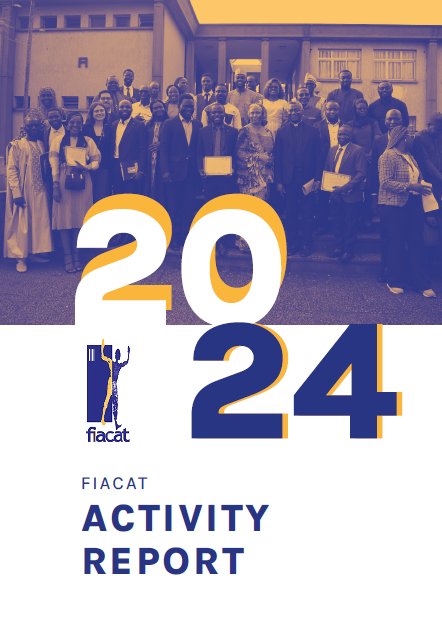The African Commission on Human and Peoples’ Rights decided to tackle the issue of the death penalty in 1999 by adopting a resolution "Urging States to Envisage a Moratorium on Death Penalty" in Kigali (Rwanda) during its 26th Ordinary Session.
Following this Resolution, the Commission decided to set up a Working Group on the specific topic of the death penalty in Africa in 2004, with a mandate, inter alia, to prepare a Study on the issue of the death penalty in Africa and to develop a strategic plan for abolition on the continent.
This study was completed in 2011 thanks to the technical support of the World Coalition Against the Death Penalty and FIACAT and was adopted at the 50th Ordinary Session of the ACHPR in November 2011.
On April 19, 2012, at its 51st session, the ACHPR launched this study during a ceremony attended by FIACAT, FIDH, and the World Coalition.
Strategic plan for abolition
The study highlights key strategic areas for abolition that the African Commission will implement in the coming years.
For instance, the ACHPR is to put pressure on policy makers to encourage Member States of the African Union to sign and ratify the human rights instruments that prohibit the death penalty and adopt a "Day of the abolition of the death penalty" in Africa.
Finally, the study recommends that the African Union and the States Parties "adopt a Protocol to the African Charter on Human and Peoples' Rights on the abolition of the death penalty in Africa" .
This is a breakthrough for African States to identify more easily with a regional legally binding instrument which they will be more inclined to ratify. Out of the 16 African States that have abolished the death penalty in Africa, only eight have ratified the only international treaty on the abolition of the death penalty: the Second Optional Protocol to the International Covenant on Civil and Political Rights .




